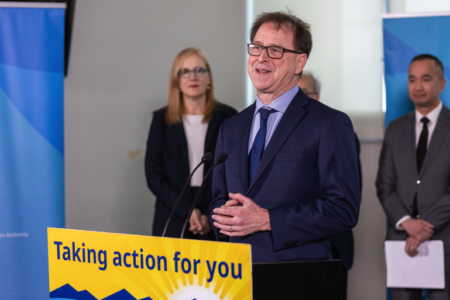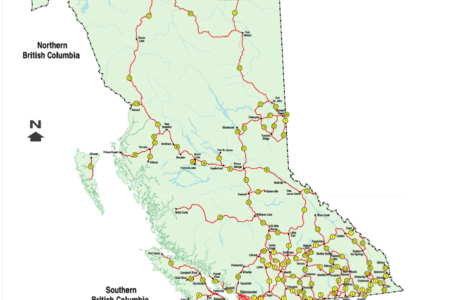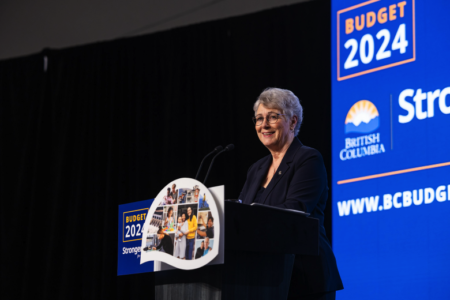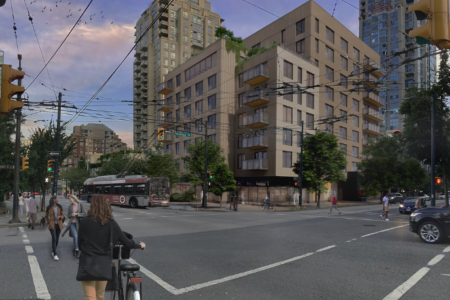District energy project gets plugged in
The district energy system project and the city’s utility company are looking to plug into a delectable grant in order to achieve lower greenhouse gas emissions in the city.
Nelson Hydro received approval through a resolution from city council Monday night to apply for grant funding through the Green Municipal Fund (GMF) by Sept. 15 for its proposed district energy system project.
The money would help the fledgling project and Nelson Hydro begin the work of constructing a solid business case for an energy-producing biomass project for the city.
In order for the city to make a simple payback period of 15 years or less on the district energy system, said Nelson Hydro general manager Alex Love, additional grant funding is needed, either through the Municipal Finance Authority or a grant source such as the GMF.
“But, really, we need to take the most attractive option available to us right now,” to make sure we have funding available, he said.
The GMF is offering a low interest loan of up to 80 per cent of a project’s cost, 15 per cent of which would be contributed as a grant. For the district energy system — around a $6 million project — it would mean $4.8 million in total funding and $720,000 in grant funding.
As approved at the July 6 city council committee of the whole meeting, the district energy system project and Nelson Hydro were given permission to source out grant funding.
The GMF, offered through the Federation of Canadian Municipalities, has funding available for capital projects that support sustainable community development — with the city’s district energy system eligible to apply on the funding source.
Love noted that a funding partner would be secured for the city through the GMF. The city has also committed up to $100,000 of its own money to further explore the feasibility of the project.
Since the project was pitched in council in summer, Nelson Hydro has been talking to potential customers and, although no one has been signed up, reception for the biomass project has been “warm,” said Love.
The city’s utility company is currently nailing down the business case for constructing a biomass plant for energy distribution in the downtown core, as well as sketching out its preliminary design.
Utilizing biomass from locally collected wood waste, the district energy system is a low carbon alternative to heating with natural gas. The district energy system being proposed for Nelson would consist of a central heating plant, an underground piping system that would transport heated water to buildings within the community, and energy transfer stations at each building that would transfer the heat from the water to the facility.
The central energy plant would have a biomass boiler that would use wood waste from the local area as a fuel source. This system would be for heat only and would not generate electricity.
The full project has a capital cost of about $6 million, with a payback of 15 years or less based on a combination of financing rates, grant funding and customer connections.
If it receives the grant, the money won’t be spent until city council decrees final approval on the project.
Zoning and off-street parking
The city has passed legislation on new regulations for the size of area required for waste and recycling in order to not harbour a disincentive for those creating multi-residential developments.
City staff felt current waste and recycling regulations for multi-residential developments (with between three and nine dwelling units) were onerous to comply with, and it discouraged people wishing to develop additional units in existing buildings.
The new regulation reduces the size of the area required for waste and recycling.
Fees and charges
The size of the project will now determine the size of the development variance permit fee after council voted to change its development services fees and charges.
The change will include the addition of minor development variance fees and clarification of the fee for a major development variance permit within the schedule.
The proposed changes provide a more reasonable fee for minor variances to city bylaws. This will allow people applying to undertake small scale repairs and upgrades to their properties — such as construction of a new fence or deck — without the significant cost of a $900 application fee.
With the new approved change to the fees schedule, the cost of a minor variance will decrease. The cost for one minor variance is $500. The fee for two minor variances is $750, which is $250 more than the base fee.
For three or more variances the fee will be $900, which is the current rate charged for all variance applicants.
The graduated fee is meant to reflect the city’s investment of time and resources in an application.

























